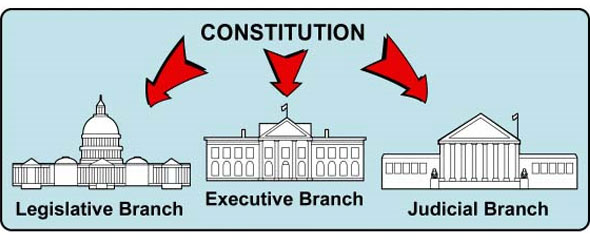
Following Constitutional Court’s decision to block a referendum that would have allowed President Alvaro Uribe to run in this year’s Presidential elections, observers and officials in Colombia and abroad have spoken out in praise of Colombia’s democracy for three broad reasons. First, the decision shows that Colombia’s judiciary is still quite independent. Second, now that Uribe can finally be considered an outgoing President, people have begun examine his legacy and many seem to agree that, by improving security in Colombia, he has strengthened the country’s democracy. Third, Uribe’s acceptance of the decision shows that he is not the center-right mirror image of Venezuelan populist leader Hugo Chávez, as some had begun to fear.
Not all this celebration is misguided. Thankfully, Colombia is no Venezuela. And, thankfully, it is now a much safer country than it was eight years ago, before Uribe took office. Security is indeed an important element of any democracy. Although fears of the failure of the Colombian state before Uribe were exaggerated, clearly the scale of violence was a threat to the normal functions of Colombian democracy. However, it is equally important to consider the many other necessary elements of a functional democracy before showering the President with unambiguous praise.
First, corruption is rife in the country. Since I began drafting last week’s column on this very issue, evidence of widespread fraud, irregularities and paramilitary influence in the upcoming Congressional elections has only multiplied. The way things are going, corruption and parapolitics will plague Colombia’s democracy for years to come. To be fair, many of these problems began long before Uribe took office. And yet, surely a heroic democrat would have done more to at least reduce the continued influence of drug-trafficking terrorist groups in politics. By all measures, President Uribe was frustratingly reluctant to promote truth and justice in parapolitics cases, partly because many of the officials under investigation were part of his political coalition. One of them, Mario Uribe, is the President’s cousin.
By another measure of democracy, the strength of human rights, Colombia is an utter failure. The country’s internally displaced population is the second largest in the world. Hundreds of thousands of Colombians have been displaced during each year of Uribe’s two terms. Colombia is also among the world’s most dangerous countries for union members, human rights activists and journalists. The President has recently redeemed himself somewhat by helping to pursue justice on one human rights issue: extrajudicial executions by the Colombian military. But justice in those cases is still advancing quite slowly. Overall, the country’s human rights crisis has only grown under Uribe’s watch.
A third element of democracy, press freedom, is under attack in Colombia. Much of Colombia’s mainstream media is still run by oligarchic groups with strong ties to the political establishment. A perfect example is Cambio, a popular news weekly known for its vigorous and independent investigative reporting that was recently reduced to a monthly. Cambio is owned by the Santos family, which includes former Defense Minister (and likely Uribista candidate for the Presidency) Juan Manuel Santos and current Vice President Francisco Santos. The official story is that the Santos family decided to downsize the magazine and replace its leadership because Cambio was in financial disarray. However, the magazine was actually doing quite well and most observers agree that the shakeup at Cambio was a response to its vigorous and politically inconvenient investigative reporting.
Other independent media outlets and investigative reporters have been threatened, marginalized and silenced by the political establishment. President Uribe was notoriously dismissive of dissenting journalists and media groups and frequently accused them, almost always baselessly, of sympathies for or ties to guerrilla groups and the Venezuelan government.
Finally, despite the recent show of strength by the Constitutional Court, the independence of the judiciary is increasingly under threat. Throughout his Presidency, Uribe deliberately discredited the courts, accusing them of political bias and corruption when, in fact, the judiciary has long been known to be Colombia’s most independent, honest and transparent institution. Leonardo Efraín Cerón, spokesman for a national association of judges, recently said that Uribe’s rhetorical attacks on the courts created a dangerous environment for judges, contributing to the murder of Soacha judge Fernando Patiño. Other members of the judiciary – as well as reports by international observers – confirm this general sense of growing harassment and isolation.
In short, Uribe’s legacy as a democrat is not unambiguously positive. The President has indeed improved security, but he is also leaving behind a hopelessly corrupt Congress, an appalling human rights crisis and a weakened judiciary. Though not all of these problems are new, most observers agree that Uribe has done little to address them, in some cases, has stood in the way of efforts to reduce them. His successor would do well to put bolstering Colombia’s democratic institutions near the top of his agenda, but he will have his work cut out for him.

